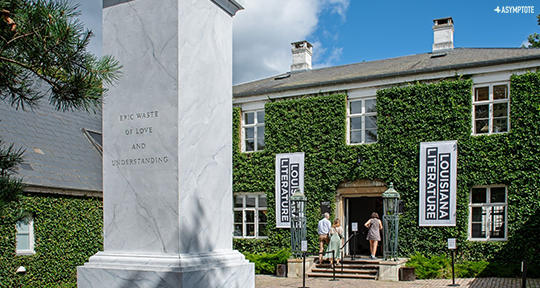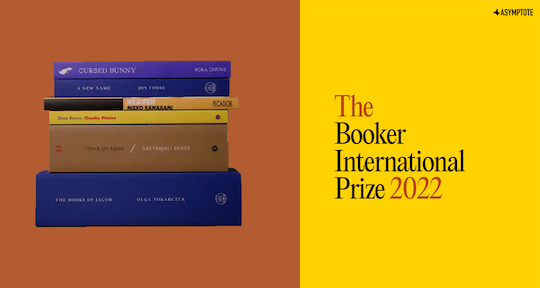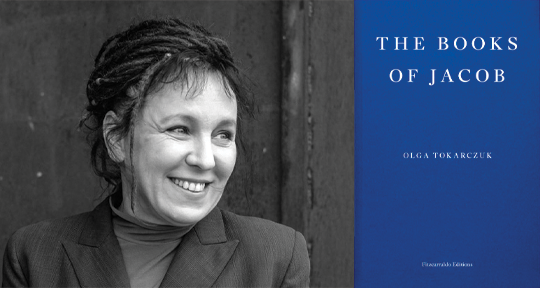This week, our writers bring you news from Poland and Central America. In Poland, the life and work of the renowned poet Adam Zagajewski has been celebrated after he passed away, while Olga Tokarczuk has published a children’s book; and in Central America, a new literary magazine has been launched to feature LGBTQ+ voices. Read on to find out more!
Julia Sherwood, Editor-at-Large, reporting from Poland
The literary community not just in Poland but around the world has been mourning the loss of the great Polish poet and essayist Adam Zagajewski, who passed away in Kraków on 21 March, aged seventy-five. The winner of numerous literary awards, including the Neustadt International Prize for Literature (2004) and the Zhongkun International Poetry Prize (2014), Zagajewski was appointed a Chevalier of the French Legion of Honour in 2016. His 2002 poem “Try to Praise the Mutilated World” (translated by Clare Kavanagh) captured the sombre mood after 9/11. In his final interview, published last summer on culture.pl, he defined poetry as follows:
I’m partial to a very old definition articulated by an Italian Jesuit poet and philosopher at the turn of the 18th century: “Poetry is a dream made in the presence of reason.” I adore that, as it contains two elements—something wild connected to imagination and dreams, yet still kept in order by reason. A sort of dialogue with the imagination.
Although he had been mooted as a candidate for the Nobel Prize in Literature for many years, Zagajewski never received that accolade. Olga Tokarczuk, who won the prize in 2018, and has “always held that writers don’t really have biographies, and that the best way to find out about them is to read their books,” was nevertheless compelled to write a biographical essay, which has recently appeared on the Nobel Prize website (trans. Antonia Lloyd-Jones,) in which she tackles the subject with her customary warmth and originality.
Tokarczuk has also branched out into picture books with Lost Soul, a “meditation on the fullness of life,” illustrated by Joanna Concejo and also translated by Lloyd-Jones. The translator is also behind the English version of the delightful second outing of the matronly sleuth, Zofia Turbotynska, in Karolina and the Torn Curtain, a retro crime story set in the 1890s in Kraków, penned by Maryla Szymiczkowa, a.k.a. the writer-translator duo Jacek Dehnel and Piotr Tarczyński. For further details of these Polish books and more, due to appear in English 2021, look no further than this helpful list compiled by culture.pl.
The latest threats to freedom of expression in Poland are summed up in a report by constitutional lawyer and former journalist Anna Wójcik. They relate to a 1,700-page anthology on the extermination of Jews in Nazi Germany-occupied Poland during the Second World War, Night Without End. The Fate of Jews in Selected Counties of Occupied Poland, published in 2018. A Warsaw district court ruled in February that its authors, prominent Holocaust researchers Professor Jan Grabowski of the University of Ottawa and Professor Barbara Engelking, who heads the Polish Center for Holocaust Research of the Polish Academy of Sciences, must publicly apologize for statements alleging that the mayor of the village of Malinowo shared responsibility for the death of Jews there in 1943 at the hands of Nazi Germans and that he robbed a Jewish woman of her possessions.
To end on a positive note: in December 2020, writer, publisher, and head of the Pogranicze (Borderland) Foundation, Krzysztof Czyżewski, was awarded the Ambassador of New Europe prize by the European Solidarity Centre in Gdańsk and the Eastern European College in Wrocław for his book W stronę Xenopolis (Towards Xenopolis), while Szczepan Twardoch’s The King of Warsaw (trans. Sean Gasper Bye) was longlisted on 11 March for the European Bank for Reconstruction and Development Literature Prize 2021.
José García Escobar, Editor-at-Large, reporting from Central America
Last month saw the launch of a new arts, culture, and literary magazine in Central America: Revista Impronta, which will focus on the work and voices of the LGBTQ+ community in the region. Made possible by the effort of journalist Daniel Villatoro, Revista Impronta has since shared work by Central American artists such as rapper Rebeca Lane, writer David Ulloa, poet Roy G. Guzmán, fashion designer Manuel de la Cruz, and comic book artist Breena Núñez.
Additionally, authors, bookstores, and festivals across Latin America recently came together to honor the Guatemalan writer Augusto Monterroso, who would have turned 100 this year. Monterroso is most famous for books such as La oveja negra y demás fábulas (The Black Sheep and Other Fables), and for his story “El dinosaurio” (“The Dinosaur“). Augusto Monterroso was also awarded the Juan Rulfo Award in 1996, the Miguel Ángel Asturias National Prize in Literature in 1997, and the Prince of Asturias Award in Literature in 2000 and is regarded as one of Guatemala’s finest authors.
*****
Read more on the Asymptote blog:













